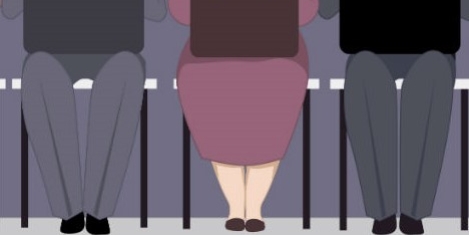July 2, 2019
More people than ever plan to work past 65 but health fears remain
 According to ONS statistics, nearly three quarters (71 percent), or 23 million UK based employees, plan to work beyond the age of 65, but two in five of these (41 percent) – equivalent to 9.5 million workers – are concerned their health will make it difficult to do so, according to new research from Canada Life Group Insurance. Over a quarter (27 percent) of UK employees think their boss views older workers as a ‘hassle’ because of these possible health struggles. This highlights the potential for poor health to act as a barrier to employment and retention of older workers. Employees also believe their boss perceives older workers as stuck in their ways (30 percent) and technologically inept (30 percent). Among the biggest concerns of those intending to work beyond the age of 65 is that they will be treated differently because their boss or colleagues perceive them as being ‘old’. (more…)
According to ONS statistics, nearly three quarters (71 percent), or 23 million UK based employees, plan to work beyond the age of 65, but two in five of these (41 percent) – equivalent to 9.5 million workers – are concerned their health will make it difficult to do so, according to new research from Canada Life Group Insurance. Over a quarter (27 percent) of UK employees think their boss views older workers as a ‘hassle’ because of these possible health struggles. This highlights the potential for poor health to act as a barrier to employment and retention of older workers. Employees also believe their boss perceives older workers as stuck in their ways (30 percent) and technologically inept (30 percent). Among the biggest concerns of those intending to work beyond the age of 65 is that they will be treated differently because their boss or colleagues perceive them as being ‘old’. (more…)

















 More than a third (37 percent) of employees aged 45 and over believe that age discrimination is an issue where they work, according to a new analysis from
More than a third (37 percent) of employees aged 45 and over believe that age discrimination is an issue where they work, according to a new analysis from 
 In the UK approximately 1 in 100 people (600,000) have a diagnosis of epilepsy, yet despite anti-discrimination legislation, people with epilepsy in the UK are more than twice as likely as those without the condition to be unemployed. That is the main conclusion of a report from
In the UK approximately 1 in 100 people (600,000) have a diagnosis of epilepsy, yet despite anti-discrimination legislation, people with epilepsy in the UK are more than twice as likely as those without the condition to be unemployed. That is the main conclusion of a report from











July 2, 2019
A Turing Test for the workplace 0
by Mark Eltringham • Comment, Facilities management, Technology, Workplace, Workplace design